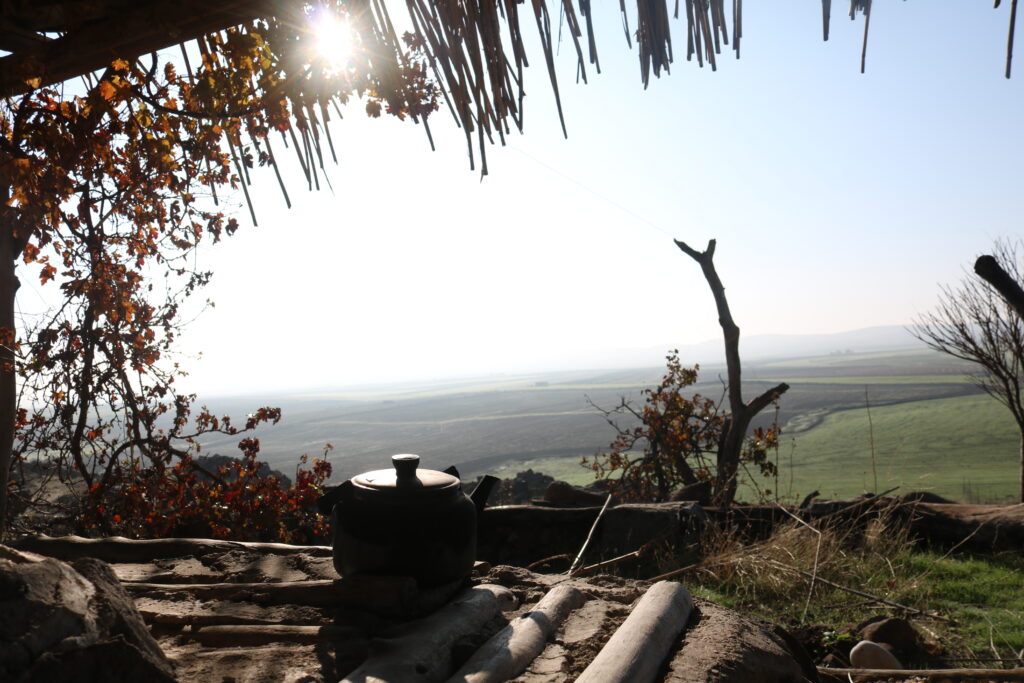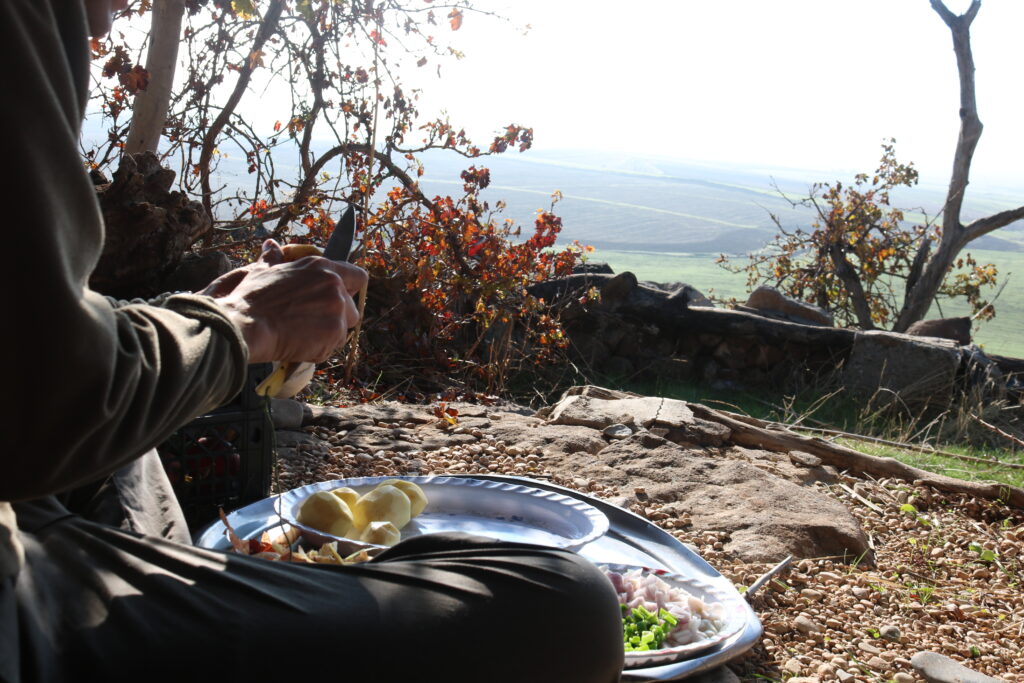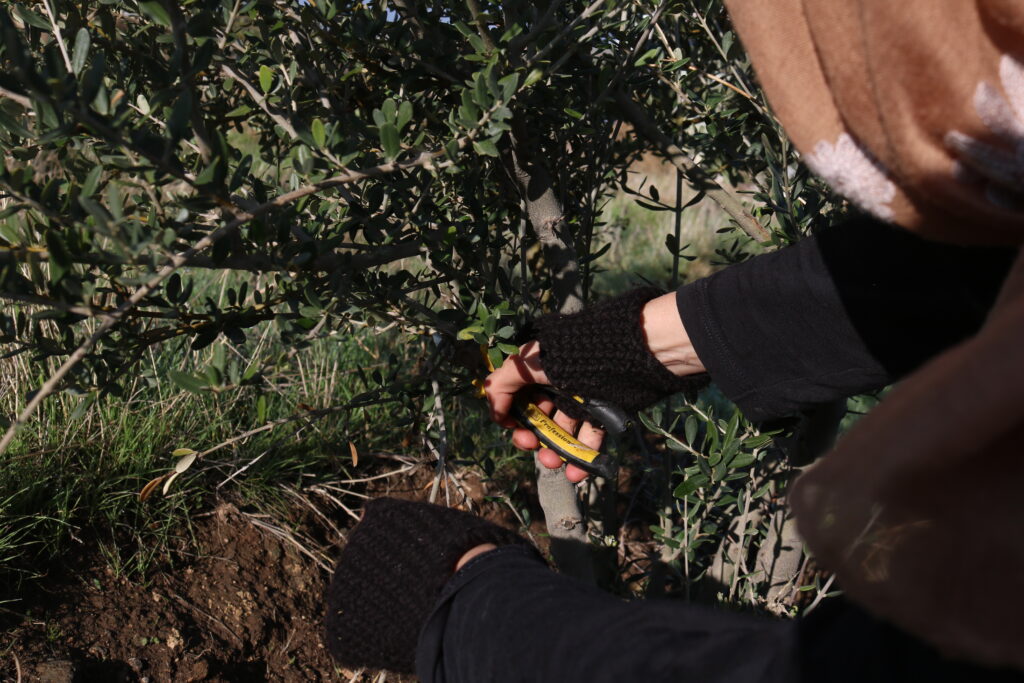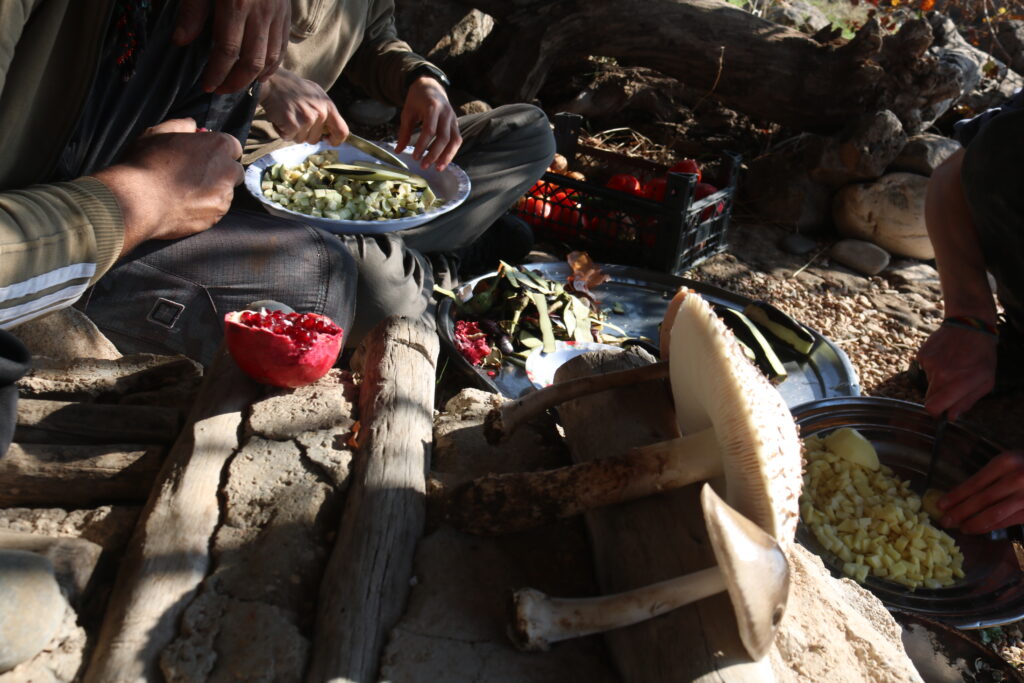
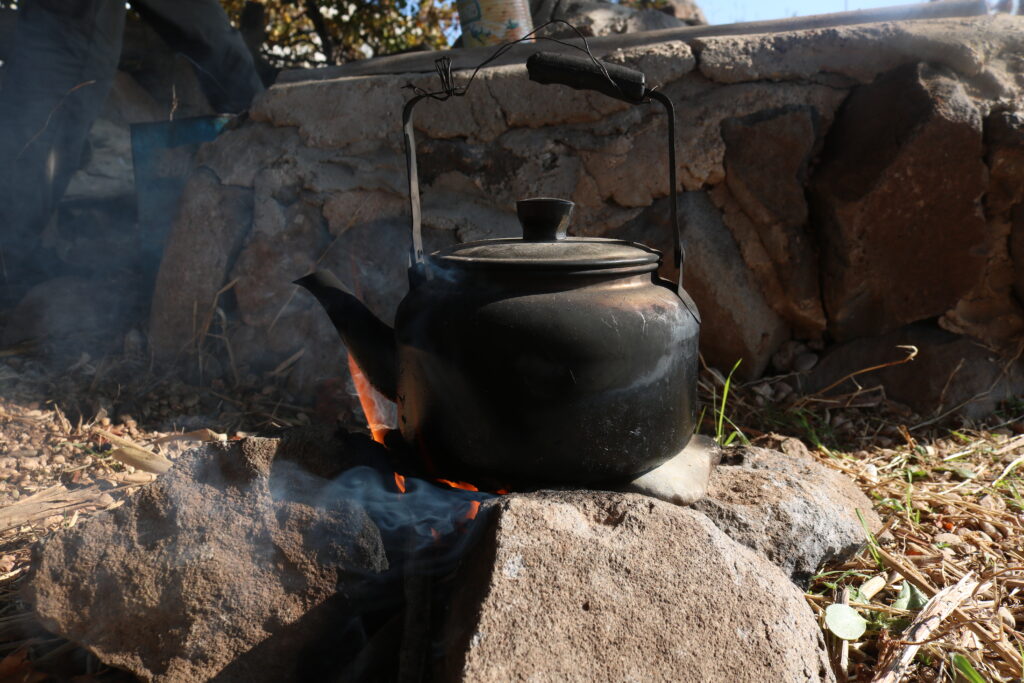
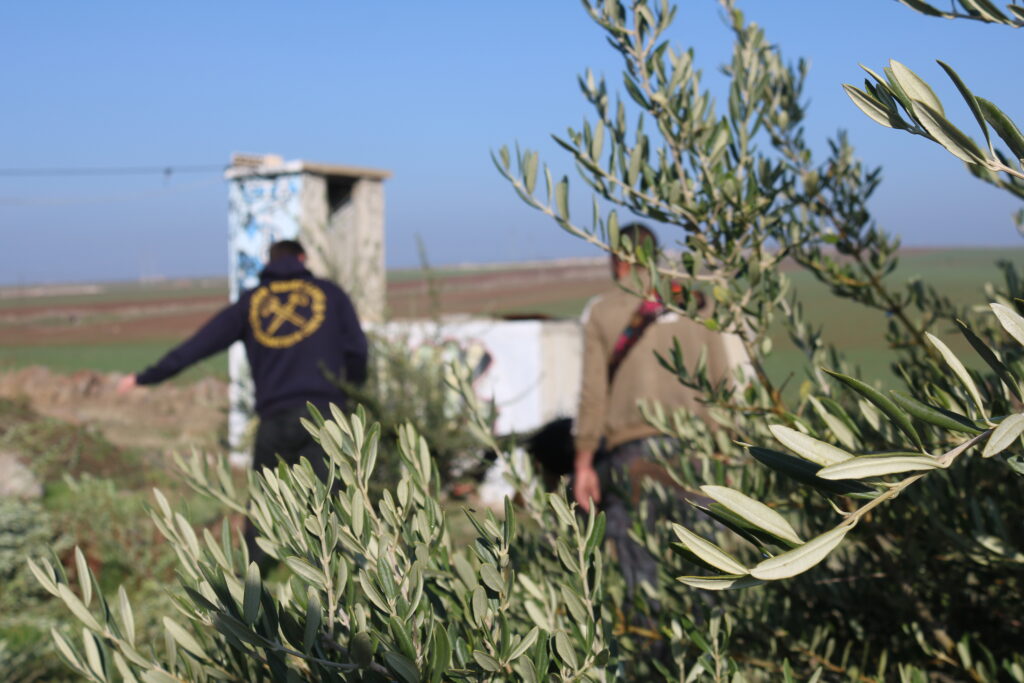
The time to prune the trees of our camp has come, actually it’s almost late but we had a lot of work to do until now. Anyway, at the end, in the last few days, equipped with secateurs and saw, we have worked on the garden of the Internationalist Commune. The friends who came before us and started the garden project did a very great job, and indeed, this summer we enjoyed the fruits (literally) of this collective work. The plowing of the land, the choice of the seeds and the irrigation system. The trees for almost 5 years now have given a great quantity of pomegranates and grapes. Serhat, a young friend from Afrin joined and taught us how to prune them. He, as like many other hundreds of thousands of people, was forced to leave Afrin when the Turkish regime occupied it. “It was like a paradise” he told us. “It was so green, so many olive trees, so many fruit ones. Everywhere you looked it was green and there was water”.
While working among the trees we also have the chance to slow down our rhythm, and reconnect with the life around us. There is so much life that we (usually) don’t see. Beautiful butterflies, ants, worms and ladybugs, were walking here and there like in a small village, everyone working together. As Reber Apo said, observing life in its smallest form, we can understand the universe.
After many hours of work we cooked on the fire and drank çay together. Serhat told us about how his time was in the YPG, the resistance of Afrin, and how the life in the camp is now, where he lives with his family. They are together with many other families from Serekaniye.
While looking at the garden, and the fields around us, we cannot not think about what the Turkish State and it’s islamist gangs are doing in Afrin and in all the occupied territories. Just a few days ago, another video showing bulldozers uprooting hundreds of olive trees, in Afrin, has been shared. Up until now, more than one million trees have been cut or burned in the region. This ecological destruction is part of the larger war that Turkey is carrying out against the people of north and north-east Syria, on the economical, psychological, cultural, sanitary and military level. The cutting of the rivers’ flow or of it’s pollution, the bombing of infrastructure and the use of chemical weapons are all aspects of this war, along with the killing of civilians and targeting of people working within the Autonomous Administration, especially women.
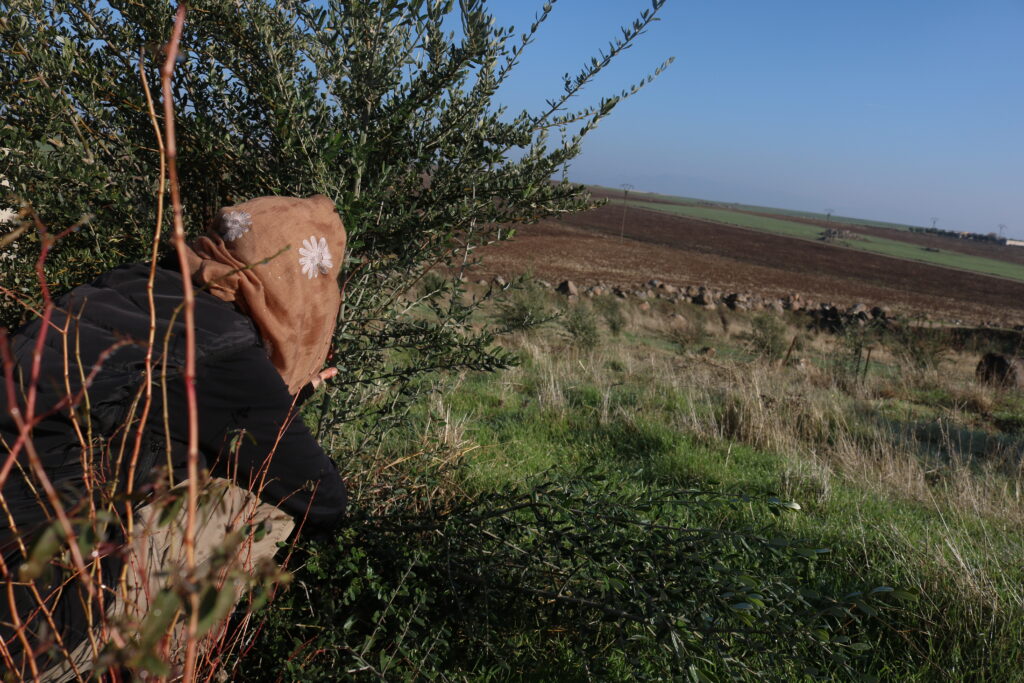
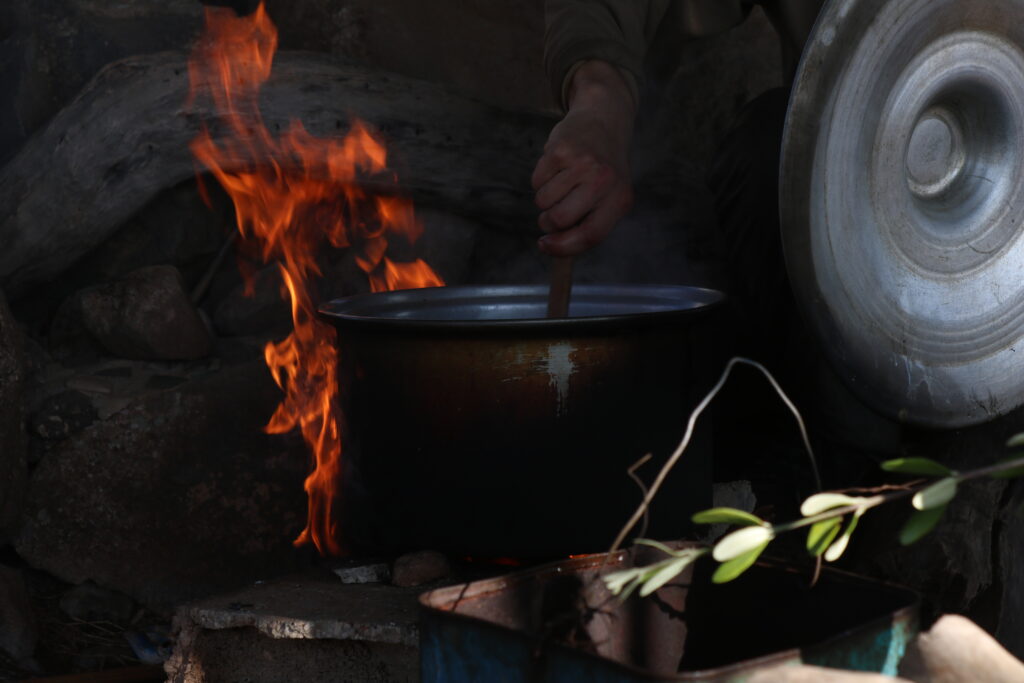
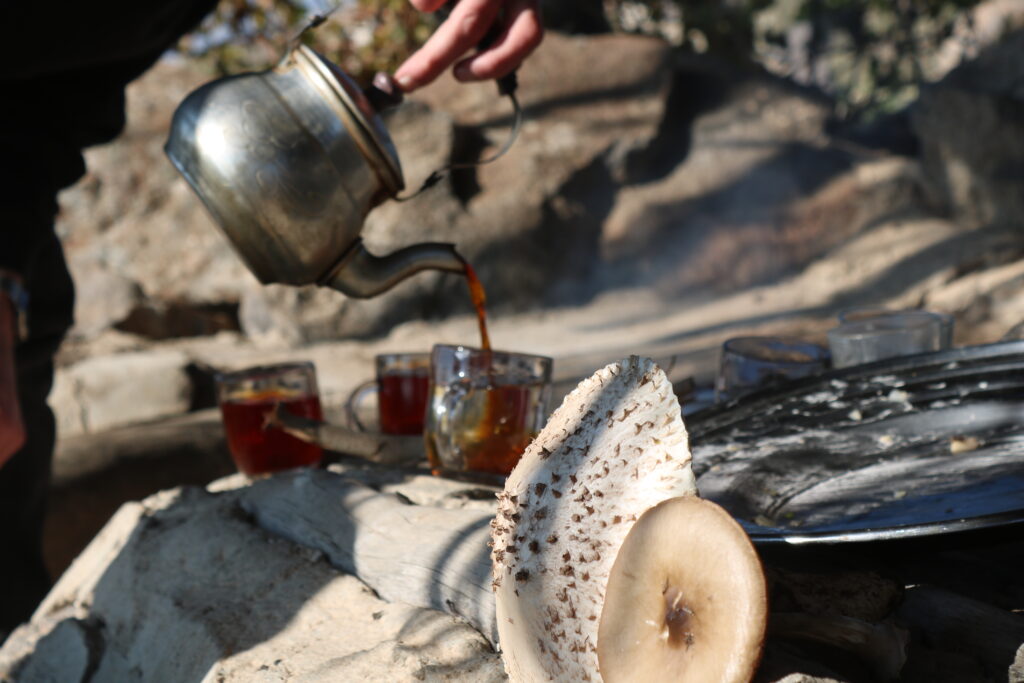
But looking at this garden, at the fields and villages around, listening to the words of this friend, what most comes to our mind is the reason why, even among all these obstacles and difficulties, the Kurdish people and the people of north east Syria continue to resist: for a free and democratic life.
A life that is not something abstract or so far from the reality of the everyday, it’s in the way we, together, decide to live, to organize ourselves and our society.
What we learn from nature and from people living in harmony with it is that the land has not such division like the ones that state borders create.
As internationalists, the love for our land is also what moves us to struggle together with others, for the freedom of their land.
What the people of North-East Syria are trying to build up, under the name of Democratic Nation, is a space for freedom and democracy.
What we have learned from the people of this land is also the value of self defense, its deep meaning. Defending nature is self-defense, defending the land, the possibilities of life, the values, ones own culture and identity is self-defense.
Now it’s getting dark, for now the pruning work is finished, we are really satisfied and happy of the time spent with Serhat, and we are sure that next year our trees will grow even stronger.
